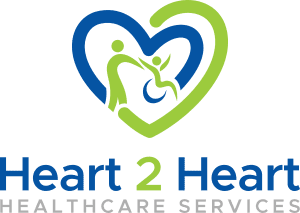To excel as a home health care professional. Prioritize effective communication & active listening To build trust with patients. Enhance your skills through continuous education & training. While cultivating empathy & compassion. Develop strong time management abilities To ensure efficient care delivery, & foster collaboration with other healthcare providers. Maintain meticulous documentation for compliance & quality assurance. Stay organized & adaptable To individual patient needs. Focus on patient centered care by involving them in decision-making. Lastly. Practice selfcare To avoid burnout & remain effective in your role.
Essential Insights: 10 Effective Tips for Home Health Care Professionals. Discover 10 essential tips for home health care pros! Enhance your skills. Build trust, & deliver better care. Elevate your practice today with these insights!
Essential Insights: 10 Effective Tips for Home Health Care Professionals
Understand Patient Needs
Assessment plays a crucial role within home health care. Every patient’s requirements are unique. And professionals must take time familiarizing themselves with each individual. By understanding specific medical histories. Preferences. And environmental factors. Better personalized care can be delivered.
Consider spending more time communicating openly with patients. Establishing rapport encourages them to share their thoughts. Fears. And expectations. This two-way communication promotes trust. Making them more comfortable discussing concerns related to their condition.
Listening closely allows professionals to address emotional and physical needs adequately. When patients feel acknowledged. Overall satisfaction and compliance with care plans improve significantly.
Effective Communication Skills
Strong communication abilities form the backbone of successful interactions. Home health care professionals should not only share information but also listen actively. Effective communication fosters deeper connections with patients. Caregivers. And family members. Creating a supportive environment.
Consider employing nonverbal cues like eye contact and encouraging body language. These elements enhance understanding while demonstrating compassion and empathy. Sometimes. Gestures can convey emotions more powerfully than words alone.
Additionally. Always be clear and concise when providing instructions. Utilizing simple language allows patients and caregivers alike to grasp critical information easily. Ensuring everyone stays informed about care protocols.
Maintain Professional Boundaries
Establishing boundaries proves essential for home health care professionals. While warmth and compassion are vital. Maintaining professionalism safeguards both parties. Clear guidelines protect caregivers from burnout. While also ensuring patients receive proper attention.
Sometimes. Patients may attempt forming deeper relationships. It’s crucial for professionals to navigate these situations delicately. Validating feelings while reinforcing boundaries. This approach allows patients to feel valued without crossing personal lines.
Professionals can regularly review their boundaries. Ensuring they remain intact throughout their career. Setting limits contributes positively both. Overall wellbeing and patient care experiences.
Utilize Technology Effectively
In today’s world. Technology plays a significant role in health care. Home health care professionals can benefit greatly from embracing various tools and applications. Platforms designed for patient management streamline communication. Scheduling. And documentation tasks.
Additionally. Electronic health records (EHR) allow easy access to patient data. This not only helps save time but also ensures accurate information retrieval during various scenarios. Professionals should become familiar with these technologies through regular training and practice.
Regularly assess personal comfort levels with technological tools. If difficulties arise. Obtaining assistance from tech support can clarify any challenges. Embracing technology enhances patient care while minimizing errors.
Prioritize Patient Safety
Patient safety stands at the forefront of home health care professionals’ responsibilities. Implementing standard precautions. Such as infection control measures. Safeguards both patients and caregivers alike. Regularly review safety protocols to ensure compliance with health regulations.
Education on proper medication administration techniques significantly contributes toward patient safety. Professionals must ensure patients fully comprehend their prescriptions. Emphasizing dosages and potential side effects. Utilizing visuals often aids memory retention.
For further insights on essential safety practices. Refer to this useful resource: Top 10 Tips for Home Health Care Professionals. Ongoing learning fosters a culture where safety remains paramount.
Enhance Time Management
Time management skills directly impact overall effectiveness in home health care. Establishing clear priorities allows professionals to navigate busy schedules without feeling overwhelmed. Identifying urgent tasks versus routine responsibilities prevents unnecessary stress.
Pacing oneself throughout a day helps maintain a steady workflow. Utilizing planners or digital calendars can aid organization. Ensuring appointments do not overlap and critical tasks receive timely attention.
Consider establishing specific time blocks dedicated solely toward administrative tasks. This separation enhances focus and minimizes distractions during patient interactions.
Embrace Continuous Learning
The medical field continually evolves. Making ongoing education crucial for professionals. Regularly attend seminars. Workshops. Or webinars focused on emerging trends within home health care. Staying current provides valuable insights. And armed with fresh knowledge. Enhanced patient care results.
Join organizations or online communities dedicated to home health care. Networking and exchanging experiences with peers foster support. Helping overcome challenges faced on a daily basis.
Consider obtaining additional certifications or specific skill training as well. Such initiatives increase professional credibility while allowing for personal growth within this rewarding field.
Practicing SelfCare
Balancing work responsibilities alongside personal wellbeing requires diligent effort. Home health care professionals often place patients’ needs above their own. Leading to burnout. Prioritizing selfcare helps maintain enthusiasm while fostering resilience in challenging times.
Incorporate activities promoting relaxation and happiness into daily routines. Whether through meditation. Exercise. Or engaging hobbies. Selfcare approaches nourish both mind and spirit.
Remember. Nurturing oneself enables professionals to provide better service for patients and caregivers. Establishing these habits leads toward a harmonious worklife balance.
Essential Features of Successful Home Health Care
- 🔍 Personalized Patient Care
- 📅 Effective Scheduling
- 💬 Clear Communication
- 📊 DataDriven Insights
- 🛡️ Safety Protocols
- 🌱 Continuous Education
- 🌟 Professionalism and Ethics
| Tip | Importance | Implementation |
|---|---|---|
| Understand Patient Needs | Builds trust | Regular assessments |
| Effective Communication Skills | Improves care | Active listening |
| Maintain Professional Boundaries | Prevents burnout | Regular reflection |
During my own journey as a home health care provider. I’ve unearthed countless invaluable lessons. Understanding a patient’s unique requirements proved pivotal. Enhancing my ability to deliver tailored care effectively. Embracing technology also became essential as it streamlined communication. Alleviated scheduling challenges. And enriched patient experiences. These insights helped cultivate a fulfilling career centered around compassion and dedication.
For more valuable information. Please visit our site. Understanding these essential insights equips home health care professionals with tools necessary for thriving in this rewarding field.
:max_bytes(150000):strip_icc()/VWHealth-DiverticulitisSelfCareTips-AmeliaManley-Standard-a007bb5e15744d4e86b5e96014cb0def.jpg)
What are The essential skills needed for home health care professionals?
Essential skills for home health care professionals include effective communication. Empathy. Time management, & problem-solving abilities. They must also possess strong clinical skills & have a good understanding of medical equipment & procedures To provide quality care.
How can home health care professionals build trust with their clients?
Building trust involves being consistently reliable. Respectful, & empathetic. Listening To clients’ concerns & demonstrating genuine care for their wellbeing can significantly enhance The trust relationship.
What are some effective ways To handle difficult situations in home health care?
Handling difficult situations requires patience. Active listening, & maintaining a calm demeanor. Professionals should also utilize conflict resolution techniques. Such as mediating discussions & focusing on solutions rather than problems.
How can home health care professionals ensure client safety?
Ensuring client safety involves regular assessments of The home environment. Recognizing potential hazards, & implementing safety protocols. Continuous education on safety practices & emergency procedures is also crucial.
What role does documentation play in home health care?
Documentation is vital in home health care as it helps track clients’ progress. Ensures continuity of care, & provides legal protection. Accurate records also facilitate communication among healthcare providers.
How can home health care professionals manage their time effectively?
Effective time management can be achieved through prioritization of tasks. Creating a daily schedule, & using time tracking tools. Setting deadlines & minimizing distractions also contribute To better time management.
What strategies can be used To support client independence?
Supporting client independence involves encouraging them To participate in their care decisions & daily activities. Providing adaptive equipment & teaching life skills can empower clients To maintain their autonomy.
How should home health care professionals handle emotional challenges?
Handling emotional challenges requires selfcare & seeking support from colleagues or supervisors. Professionals should also engage in mindfulness practices & establish boundaries To manage stress effectively.
What are The best practices for communication with clients & their families?
Best practices for communication include active listening. Using clear & simple language, & being open & honest. Regular updates & involving families in care decisions also enhance communication effectiveness.
How can home health care professionals stay current with industry standards?
Staying current involves participating in continuing education. Attending workshops, & engaging in professional organizations. Subscribing To industry publications & online resources can also keep professionals informed about The latest practices & regulations.
Conclusion
To wrap things up. These ten tips can truly make a difference for home health care professionals. Whether you’re just starting out or have been in The field for years. Keeping communication clear & understanding your clients’ needs is key. Remember To stay organized & prioritize selfcare To prevent burnout. Building trust with clients & their families will help create a positive environment. By following these simple insights. You’ll not only enhance your skills but also make a real impact in The lives of those you care for. Keep learning. Stay compassionate, & enjoy The rewarding journey of home health care!

